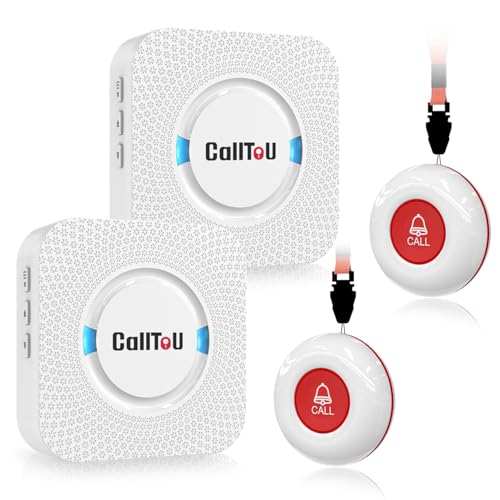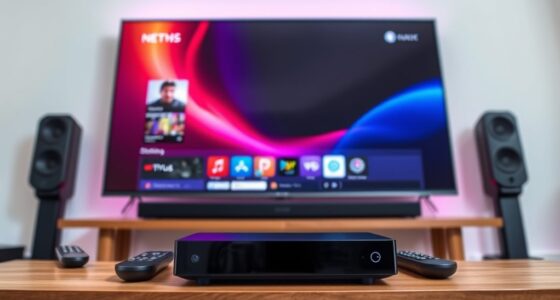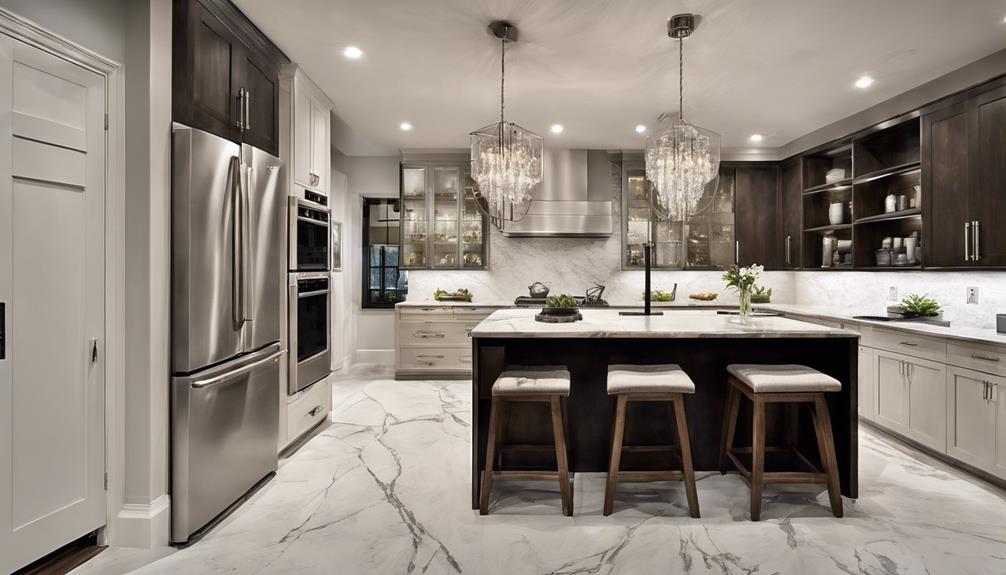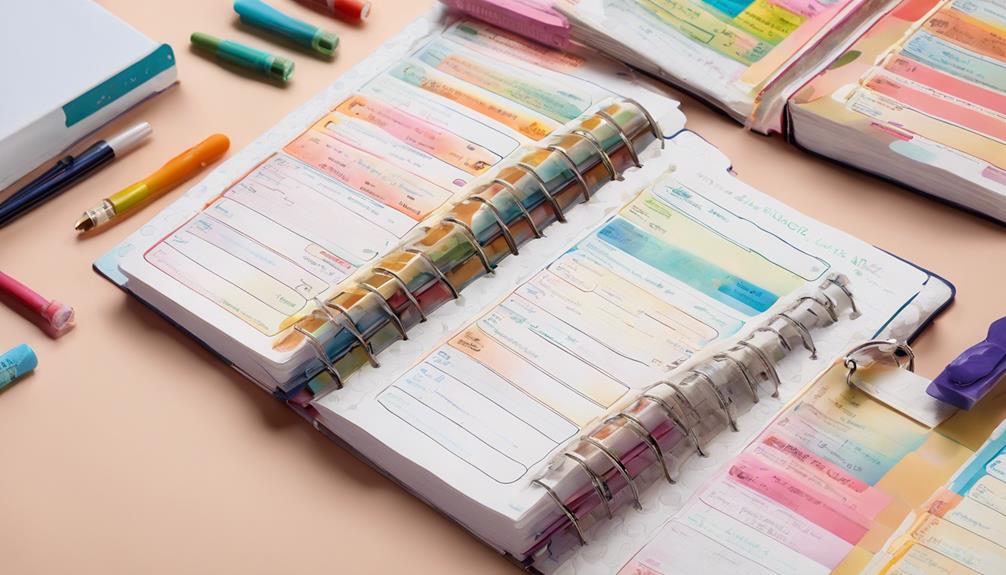If you’re on the hunt for the best emergency alert systems for the elderly in 2025, I’ve got you covered. Some top options include the Remote Home Medical Alert System and the stylish Home & WELLNESS Senior Safety System Medical Alert Watch. These systems prioritize safety with features like fall detection and 24/7 monitoring. They can give you and your family peace of mind. Stick around to discover more about these innovative solutions. In addition to their essential safety features, the best elderly alert systems 2025 also offer user-friendly interfaces, ensuring that seniors can easily operate them in times of need. Many of these systems are designed to seamlessly integrate with smartphones and smart home devices, providing an added layer of convenience and connectivity. With advancements in technology, families can now enjoy enhanced communication and real-time updates, making it easier than ever to stay informed about their loved one’s well-being. Moreover, many of the best elderly alert systems 2025 come equipped with GPS tracking capabilities, allowing caregivers to monitor the location of their loved ones in case of an emergency. This feature is particularly beneficial for seniors who may enjoy more independence but still require an extra layer of security. As technology continues to evolve, these systems are also incorporating health monitoring functions, such as heart rate and medication reminders, further enhancing their utility and effectiveness in supporting elderly individuals. Additionally, many of the best elderly alert systems 2025 are increasingly focusing on personalized care plans, allowing users to customize alerts based on individual needs and preferences. This level of personalization not only improves the user experience but also fosters a greater sense of security for both seniors and their families. As we look toward the future, it’s clear that these systems will continue to adapt, ensuring that safety and health management remain top priorities in elderly care.
Key Takeaways
- Look for emergency alert systems with 24/7 monitoring, fall detection, and easy-to-use interfaces tailored for seniors' needs.
- Consider options with no monthly fees, such as systems that connect directly to landlines or provide one-touch 911 access.
- Evaluate devices that offer GPS tracking and customizable alerts to enhance safety and communication for elderly users.
- Ensure the system has a reliable connectivity range, effective in various home environments, to guarantee assistance is always available.
- Prioritize systems with user-friendly designs, lightweight wearability, and long battery life to ensure comfort and ease of use for seniors.
Remote Home Medical Alert System for Seniors
When it comes to ensuring safety for seniors, the Remote Home Medical Alert System stands out as a game-changer, especially for those living alone. I love how the Nomo Smart Care Essential Care Kit offers 24/7 monitoring without needing special installations. Setting it up was a breeze—just plug in the hub and place the motion-sensing tags. The mobile app keeps me connected, and I appreciate the detailed activity logs and fall detection alerts. It's comforting knowing that emergency contacts are just a button away. Overall, it promotes independence while providing peace of mind for both seniors and their families.
Best For: Seniors living alone or individuals with health issues who require a reliable safety net for independence.
Pros:
- Easy Setup: Quick installation with no special requirements, allowing users to start monitoring almost immediately.
- Comprehensive Monitoring: Offers 24/7 emergency alert services and detailed activity logs via a user-friendly mobile app.
- Enhanced Safety Features: Includes fall detection technology and emergency call buttons for rapid assistance.
Cons:
- WiFi Dependence: Performance may be affected by WiFi strength, leading to potential connectivity issues.
- Subscription Required: Full functionality, including 24/7 monitoring, necessitates a subscription fee.
- Limited to Home Use: Primarily designed for home environments, which may not cater to seniors who are frequently on the go.
Home & WELLNESS co. Senior Safety System Medical Alert Watch
The Home & WELLNESS co. Senior Safety System Medical Alert Watch combines style with essential safety features. It looks like a regular watch, making it comfortable for both men and women. With a simple button press, I can call for help 24/7, ensuring I'm never alone in an emergency. The GPS tracking and fall detection are lifesavers, especially for seniors like me who may have memory issues. At just $34.99 monthly with no long-term contract, it's affordable. Plus, it tracks my heart rate and steps, promoting better health. This watch truly enhances my safety and well-being!
Best For: Seniors who want a stylish and functional medical alert device that enhances their safety and well-being.
Pros:
- Instant emergency response with 24/7 live support at the press of a button.
- Affordable monthly fee of $34.99 with no long-term contract, allowing flexibility.
- Additional health monitoring features, such as heart rate and step tracking.
Cons:
- Requires daily charging every 24 hours, which may be inconvenient for some users.
- GPS tracking may not be entirely accurate in all locations, potentially causing concerns during emergencies.
- The watch's design, while stylish, may not appeal to all seniors who prefer a more traditional look.
Life Guardian Medical Alarm Emergency Alert Phone System
For elderly individuals who want a reliable way to stay connected during emergencies, the Life Guardian Medical Alarm Emergency Alert Phone System stands out with its no-monthly-fee structure. It hooks up easily to a landline, featuring two panic buttons—a wrist and a necklace. When I press a button, it dials three pre-selected contacts, including 911 as a last resort. While the communication can be unclear, practicing with the system boosts my confidence. I appreciate the peace of mind it brings, despite the occasional false alarm and the need for clear outgoing messages. Overall, it's a supportive choice for safety.
Best For: Elderly individuals seeking a reliable and cost-effective emergency alert system without ongoing fees.
Pros:
- No monthly fees or contracts, making it budget-friendly.
- Direct communication with emergency contacts allows for quick assistance.
- Water-resistant and designed for easy use, catering to the needs of seniors.
Cons:
- Communication quality may be poor, impacting emergency response effectiveness.
- The system only works with landline connections, excluding mobile phone users.
- Initial setup can be complicated by changes in phone service providers.
CallToU Wireless Caregiver Pager Smart Call System
Designed specifically for caregivers and those needing assistance, the CallToU Wireless Caregiver Pager Smart Call System stands out with its easy-to-use SOS call buttons. This system includes two call buttons and receivers that operate within a 500+ feet range, requiring no Wi-Fi or subscription. With 55 ringtones and volume levels reaching 110dB, it's highly adaptable. I appreciate its waterproof and dustproof features, making it suitable for any environment. Users rave about its effectiveness, especially for those with mobility issues. Plus, the 24-hour customer support is a bonus, ensuring help is always just a button press away.
Best For: Caregivers and individuals needing assistance, such as the elderly, seniors, and disabled.
Pros:
- Highly effective communication between caregivers and those needing help, enhancing safety.
- Waterproof and dustproof design suitable for various environments, including washrooms and outdoor use.
- User-friendly setup with no need for Wi-Fi or subscriptions, and includes 24-hour customer support.
Cons:
- Some users experienced signal interference in distant locations due to walls or metal structures.
- Adhesive failures reported by a few customers when securing call buttons.
- Volume levels may be too loud for certain users, even at lower settings.
Caregiver Pager Wireless Call Buttons for Elderly Monitoring
When seeking an effective way to monitor seniors, the Caregiver Pager Wireless Call Buttons stand out as a reliable choice. This SOS alert system includes two wireless call buttons and a portable pager, allowing caregivers to attend to other tasks while staying connected. With a wireless range of up to 500 feet, it's perfect for larger homes. Seniors can easily call for help with a simple touch, and the call buttons can be worn or mounted anywhere. Plus, the system offers sound options to suit different preferences. I highly recommend it for anyone needing prompt and dependable alerts.
Best For: Caregivers who need a reliable alert system to monitor seniors or patients in larger homes.
Pros:
- Easy to Use: Simple SOS button allows seniors to call for help with one touch.
- Versatile Design: Call buttons can be worn, mounted, or placed on surfaces, providing flexibility in usage.
- Long Battery Life: Two AA batteries last approximately 8 months, minimizing maintenance.
Cons:
- Sound Sensitivity: Some users find the alarm sound to be too aggressive and suggest gentler alternatives.
- Limited Range in Enclosed Spaces: While effective in open areas, the range may be reduced in homes with thick walls or multiple floors.
- Requires Battery Replacement: Users need to manage battery replacements every few months, which could be inconvenient.
Safety+ 4G Medical Alert System with Fall Detection and GPS
The Safety+ 4G Medical Alert System stands out as an ideal choice for seniors who prioritize their safety and independence. Its compact design offers versatile wearing options like a lanyard or belt clip, and it's water-resistant with up to six days of battery life. I love the 24/7 monitoring and instant fall detection that connects me to trained operators in under nine seconds. Plus, the caregiver app provides real-time insights into my activity and location, ensuring my loved ones stay informed. With a simple activation process and a first month free, it's an excellent investment in peace of mind.
Best For: Seniors who value safety, independence, and easy access to emergency assistance.
Pros:
- 24/7 emergency monitoring with quick response times under nine seconds.
- Real-time caregiver app provides valuable insights into the user's activity and location.
- Compact and water-resistant design with multiple wearing options and long battery life.
Cons:
- Monthly subscription fee of $40 after the first free month may be a concern for some users.
- Mixed customer reviews regarding subscription terms and potential hidden fees.
- Limited features without a smartphone connection for additional functionalities.
Freedom Alert Max Cellphone with Medical Alert System for Seniors
For seniors who prioritize safety and independence, the Freedom Alert Max Cellphone with Medical Alert System stands out as an essential tool. I appreciate its fall detection technology, which automatically calls for help when it senses a fall. The two-way communication feature lets me express my needs even if I can't speak. Plus, GPS alerts keep my loved ones informed of my location. With 24/7 U.S.-based monitoring, I know help is always a call away. The LogicMark Connected Care app enhances this experience, connecting me with caregivers seamlessly. This system truly gives me peace of mind and confidence to live independently.
Best For: Seniors seeking a reliable and user-friendly medical alert system that enhances safety and independence.
Pros:
- Fall Detection Technology: Automatically alerts emergency services in case of falls, ensuring quick assistance.
- Two-Way Communication: Enables users to communicate their needs even if they are unable to speak clearly.
- GPS Alerts: Provides real-time location tracking, allowing caregivers to stay informed and respond promptly.
Cons:
- Monthly Subscription Required: The activation of the service necessitates a recurring fee after the initial free trial.
- Limited Battery Life: Users may need to charge the device regularly to ensure continuous functionality.
- Size and Weight: Some seniors may find the cellphone slightly bulky or heavy for everyday use.
Freedom Alert Personal Emergency Device for Home Safety
Designed specifically for seniors, the Freedom Alert Personal Emergency Device stands out as a reliable lifeline in times of need. It connects directly to my landline, allowing me to communicate with family or emergency services at the push of a button. The lightweight pendant, which I can wear or clip to my clothing, makes it incredibly convenient. Installation took just five minutes! I love that it has a rechargeable battery, lasting about 30 days, and I never have to worry about monthly fees. Most importantly, I feel secure knowing that help is just a call away, day or night.
Best For: Seniors and the elderly seeking a reliable and user-friendly emergency communication device for home safety.
Pros:
- Easy installation and programming, taking only about 5 minutes.
- Rechargeable battery with a long life of about 30 days and no monthly fees.
- Lightweight and portable pendant allows for convenient use and mobility.
Cons:
- Some users reported battery reliability issues leading to unintended 911 calls.
- Occasional glitches, such as problems with conference calling.
- Limited functionality may not meet the needs of users who prefer more advanced features.
Caregiver Pager Wireless Call Button Emergency Alert System
When it comes to guaranteeing safety for elderly loved ones, the OLINK Caregiver Pager Wireless Call Button stands out with its impressive 600+ feet range. This system includes two call buttons and a portable receiver, making it user-friendly and effective. Seniors can easily summon help by pressing a button, whether they're wearing it around their neck or it's wall-mounted. The loud 90 dB alarm guarantees caregivers are notified promptly. Setup is a breeze with simple plug-and-play installation. It's comforting to know that my loved ones can quickly reach out for assistance when they need it most.
Best For: The OLINK Caregiver Pager Wireless Call Button is best for families with elderly or disabled loved ones who need an easy way to summon assistance in emergencies.
Pros:
- User-friendly design allows seniors to easily call for help with the push of a button.
- Impressive 600+ feet range ensures the signal reaches caregivers throughout the home.
- Loud 90 dB alarm effectively alerts caregivers, providing peace of mind during emergencies.
Cons:
- Some users found the setup instructions sparse, making initial installation slightly challenging.
- Performance may vary in basements, potentially affecting the effectiveness of the alert system.
- Batteries not included, which may require an additional purchase to get started.
Elderly Senior Medical Alert System (No Monthly Fees)
Choosing an elderly senior medical alert system with no monthly fees is ideal for those who want peace of mind without ongoing costs. I love the simplicity of a one-time purchase that eliminates any future financial worries. With just a press of a button, I can connect to emergency contacts or 911. The system works using a landline, but I appreciate the optional cell phone adapter for added flexibility. Its portable design allows me to wear it as a wristband or pendant, and it's even waterproof! Setup is a breeze—just plug it in and I'm ready to go, all within 150 feet.
Best For: Individuals seeking a reliable medical alert system without the burden of ongoing monthly fees.
Pros:
- No monthly fees: One-time purchase eliminates recurring costs.
- Emergency calling: Quick connection to emergency contacts or 911 with a simple button press.
- Portable and waterproof: Can be worn as a wristband or pendant and is safe to use in the shower or tub.
Cons:
- Landline dependency: Requires a landline for calls unless the optional cell phone adapter is purchased.
- Limited range: Effective only within 150 feet of the base unit, which may not cover larger homes.
- No professional monitoring: Lacks continuous monitoring service that some users may prefer for added security.
Emergency Communicator Pendant Medical Alert
The Emergency Communicator Pendant Medical Alert stands out as an ideal choice for seniors who seek immediate access to help without the burden of ongoing costs. With no monthly fees or activation charges, I love how I can connect directly to 911 by simply pressing and holding the red button. It operates on an emergency cellular network, so I feel secure knowing it works wherever there's 2G reception. Whether I'm walking outside or at home, this pendant offers peace of mind. While some users mention hearing difficulties, overall satisfaction and reliability make it a must-have for anyone needing quick assistance.
Best For: Seniors, children, and individuals living alone who need quick access to emergency assistance without the worry of monthly fees.
Pros:
- No monthly or activation fees, providing unlimited use for life.
- One-touch connection to 911, ensuring immediate access to emergency services.
- Portable and easy to use, making it suitable for various age groups and situations.
Cons:
- Some users report difficulty hearing the device, which may affect usability.
- Limited functionality in specific rural locations due to service issues.
- Feedback suggests a desire for a smaller design for improved portability.
Medical Guardian MGMini Medical Alert Necklace System for Seniors
For seniors seeking a reliable safety net, the Medical Guardian MGMini Medical Alert Necklace System stands out with its fast and dependable water-resistant panic button. This lightweight necklace features a 4G GPS tracker, ensuring I can easily connect to a U.S.-based operator 24/7. I appreciate the extended battery life, lasting over five days, which means I don't have to worry about constant charging. Plus, the step tracking through the MyGuardian app is a nice touch. While some users report connectivity issues, I've found it provides peace of mind knowing help is just a button press away.
Best For: Seniors seeking a reliable and easy-to-use medical alert system for peace of mind and emergency assistance.
Pros:
- Fast and reliable water-resistant panic button for immediate help.
- Extended battery life of over 5 days, reducing the frequency of charging.
- 24/7 emergency operator care ensures assistance is always available.
Cons:
- Some users experience connectivity issues, particularly in areas with poor cell signal.
- Usability challenges for non-tech-savvy seniors, including difficulties with device attachment and battery status notifications.
- Limited real-time GPS tracking accuracy, which may affect location services in certain environments.
3 Pack Wireless Caregiver Call Button for Elderly
Designed specifically for seniors at home, the 3 Pack Wireless Caregiver Call Button offers a reliable solution for immediate assistance. With a 230-foot range and 433MHz technology, these buttons easily penetrate walls and doors. I love how the panic button triggers a loud alarm along with flashing lights, ensuring help arrives quickly. Plus, the app lets me customize ringtones and monitor battery levels in real time. I can wear it, mount it, or place it on a table—whatever works best. This system truly brings peace of mind, especially for families with elderly members who may need quick support.
Best For: This product is best for elderly individuals living alone or those requiring immediate assistance in a home environment.
Pros:
- Easy to use: Minimal setup required with pre-paired buttons, making it user-friendly for seniors.
- Customizable alerts: Eighteen selectable ringtones and volume levels allow for personalized notifications.
- Long-range connectivity: The 230-foot range ensures coverage throughout the home, penetrating walls and doors.
Cons:
- Setup difficulties: Some users reported challenges during the initial setup process.
- App notification limitations: Feedback indicated a need for improved sound notifications on app alerts.
- Requires battery replacement: The call buttons rely on CR2032 batteries, which may need regular replacement.
SOS Micro 24/7 Medical Alert System for Seniors
Looking for a reliable medical alert system that keeps you connected 24/7? The SOS Micro 24/7 Medical Alert System is an excellent choice. It features optional fall detection and operates nationwide on Verizon 4G LTE. You can easily activate it online or by phone, with a free month included if you choose annual billing. The compact design—under 1.2 oz—makes it easy to wear on your wrist or neck. Plus, with live operators ready to assist anytime, you'll feel secure. Customer reviews rave about its effectiveness, though keep in mind the battery may need daily charging.
Best For: Seniors who want a reliable and easy-to-use medical alert system for 24/7 emergency assistance.
Pros:
- 24/7 emergency monitoring with live operators for immediate assistance.
- Compact and lightweight design that can be worn comfortably on the wrist, neck, or belt.
- Optional fall detection feature enhances safety for seniors at risk of falls.
Cons:
- Battery life may require daily charging, which could be inconvenient for some users.
- Some users have expressed concerns regarding the battery performance and charging frequency.
- Limited information on warranty details may require further research for potential buyers.
Life Alert Caregiver Pager for Seniors
The Life Alert Caregiver Pager stands out as an ideal choice for seniors who need a reliable and easy-to-use alert system without the burden of monthly fees. This WiFi-based system sends prompt notifications to smartphones when a fall occurs, ensuring thorough family protection. With customizable ringtones and adjustable settings, it's user-friendly for both seniors and caregivers. I love how it allows remote monitoring, giving me peace of mind. Plus, the long-distance transmission capability means help is always within reach. With a solid rating of 4.3 stars, it's clear many users appreciate its reliability and absence of subscription costs.
Best For: Seniors who need a dependable alert system for emergencies without ongoing subscription fees.
Pros:
- No monthly fees make it a cost-effective solution for long-term use.
- User-friendly design allows easy operation for seniors and caregivers.
- Remote monitoring capability provides peace of mind by enabling family members to stay informed.
Cons:
- Wi-Fi only supports 2.4GHz, which may limit compatibility with some networks.
- Requires battery replacement after extended use, which could be inconvenient.
- Limited range for call signal transmission may pose challenges in larger homes or facilities.
Factors to Consider When Choosing an Elderly Emergency Alert System

When I'm choosing an emergency alert system for the elderly, I think about several key factors. It's important to take into account the monitoring options, subscription costs, and how quickly they respond in an emergency. I also pay attention to device usability and the connectivity range to guarantee it fits my needs.
Monitoring Options Available
Choosing the right monitoring options for an elderly emergency alert system can greatly impact your peace of mind. I've found that 24/7 professional monitoring services are invaluable, as they connect users to trained operators ready to provide immediate assistance. Some systems also offer mobile caregiver apps, giving real-time insights into the user's location and activity levels, which keeps caregivers informed. Automatic fall detection technology is another feature worth considering, as it alerts monitoring centers without requiring the user to press a button. Additionally, systems that allow direct communication with emergency contacts or 911 can help users explain their situations more effectively. Finally, GPS tracking is vital for seniors with mobility issues, ensuring they're always located when needed.
Subscription Costs and Fees
After exploring monitoring options, it's time to contemplate the financial aspects of elderly emergency alert systems, particularly subscription costs and fees. Many systems charge a monthly fee ranging from $29.95 to $40, which can impact long-term affordability. I appreciate that some offer a free trial period, usually lasting a month, so I can evaluate the service before committing. Alternatively, there are devices with no monthly fees that require a one-time cost, making them more accessible for seniors on fixed incomes. It's also essential to read the terms carefully; hidden fees or early cancellation penalties can arise. Ultimately, weighing these costs against the features—like 24/7 monitoring and fall detection—can help me make an informed choice.
Emergency Response Time
Understanding emergency response time is vital for selecting an elderly emergency alert system that meets my needs. Ideally, I want a system with a response time under 10 seconds to guarantee I get help quickly. Systems with automatic fall detection can be a game-changer, as they alert help without me needing to press a button. I also look for 24/7 monitoring centers, guaranteeing someone is always available when I need urgent assistance. Clear audio communication is essential during emergencies, so I can convey my situation effectively. Additionally, systems that allow me to directly contact my emergency contacts can speed up response times, giving me peace of mind knowing help is just a call away.
Device Usability and Design
When selecting an elderly emergency alert system, I find that usability and design play an important role in ensuring I can get help quickly and easily. The system should be straightforward—ideally, I want to request assistance with just a single button press. A lightweight, comfortable design is essential, so I can wear it throughout the day without frustration. I appreciate versatile wearing options like pendants, wristbands, or clips, as they cater to my lifestyle preferences. It's also significant that the audible alarms or notifications are loud enough to hear throughout my home, ensuring I won't miss them in an emergency. Finally, I look for systems that require minimal setup time, so I can get everything running smoothly with little hassle.
Range and Connectivity
Selecting an elderly emergency alert system goes beyond usability and design; range and connectivity are important factors too. I've found that the effective range can vary greatly, with many systems functioning well between 150 and 600 feet. Environmental factors like walls can impact this range, so it's essential to take into account your living space. Some systems utilize Wi-Fi, which offers flexibility but needs a stable internet connection to work effectively. For those relying on cellular signals, look for 4G LTE technology to guarantee reliable connections. Additionally, it's critical to assess the performance of panic buttons and receivers in multi-story or dense environments. A dependable signal in both your home and yard is key for peace of mind.
Battery Life and Maintenance
Battery life is a essential aspect to take into account in any elderly emergency alert system. I've noticed that battery life can vary considerably; some devices last as little as 24 hours, while others may stretch to 36 hours or more. Many systems use rechargeable batteries, which often need daily or every few days charging to stay functional. On the other hand, some alert systems use standard batteries like AA or CR2032, lasting several months but requiring periodic replacement. It's important to choose a device that offers low battery notifications to prevent unexpected downtime. Regularly monitoring the battery status and following recommended charging practices is fundamental for ensuring that the system works when it's needed most.
Fall Detection Capabilities
Understanding the fall detection capabilities of an elderly emergency alert system is essential for ensuring safety. These systems use advanced sensors to automatically detect falls and send alerts to emergency contacts or monitoring centers. I appreciate how many of them provide instant notifications, which greatly cuts down response times in emergencies. However, it's vital to choose a system with a high accuracy rate to minimize false alarms, ensuring alerts are sent only when a fall truly occurs. Some systems even offer GPS tracking, making it easier for caregivers to find the user after a fall. Additionally, customizable fall detection sensitivity is a feature I'd recommend, as it accommodates different activity levels and helps avoid unnecessary alerts during regular movements.
Customization and Alerts**
When choosing an elderly emergency alert system, customization and alerts play an essential role in enhancing user experience and response effectiveness. I appreciate systems that let me select different ringtones for various emergency buttons, making it easier to identify alerts quickly. Adjustable volume levels are vital, too, guaranteeing I can hear alerts clearly, no matter where I am.
I also value features like customizable alarm duration and brightness settings; they make the experience more user-friendly. Mobile apps connected to these systems provide real-time notifications and let me check battery levels and alarm histories. Finally, programming multiple emergency contacts guarantees my alerts reach family or caregivers simultaneously, speeding up response times when I need help the most.
Frequently Asked Questions
What Is the Average Response Time for These Alert Systems?
I've often wondered about the average response time for emergency alert systems. From what I've seen, it typically ranges from a few seconds to a couple of minutes. It really depends on the service provider and their infrastructure. I think it's essential to choose a system that boasts quick response times, especially in emergencies. After all, every second counts when you or someone you care about needs immediate assistance.
Can I Customize Alerts for Different Emergencies?
When it comes to customizing alerts for different emergencies, I've found that it's as easy as pie with many systems. You can tailor alerts to fit specific situations, like medical emergencies or falls. This flexibility gives me peace of mind, knowing I can adjust settings based on my unique needs. Plus, having the ability to choose how and when I receive alerts makes it even more reassuring in times of crisis.
Are These Systems Waterproof or Water-Resistant?
I often wonder about the durability of emergency alert systems, especially when it comes to water resistance. Many of these devices are designed to be water-resistant, which means they can handle some exposure to moisture without damage. However, it's important to check the specific product details, as not all systems are completely waterproof. I'd recommend looking for models specifically labeled as water-resistant or waterproof to guarantee they're safe in wet conditions.
How Often Do I Need to Replace Batteries?
They say, "A stitch in time saves nine," and that definitely applies here! I've found that most emergency alert system batteries should be replaced every six months to a year, depending on usage. It's a good idea to check them regularly and keep track of the dates. I always mark my calendar to guarantee I don't forget. Staying proactive about battery replacement keeps me feeling secure and ready for anything!
Do These Systems Work During Power Outages?
I've often wondered if emergency alert systems work during power outages, and the good news is, many of them do! Most systems use battery backups or cellular networks to guarantee they remain functional when the power goes out. I always check the specifications before purchasing one to confirm it can operate independently of electricity. It's comforting to know that help can still be reached, even in emergencies when power isn't available.
Conclusion
In the journey of life, having a reliable emergency alert system is like carrying a trusty compass—it helps you navigate the uncertainties with confidence. By choosing one of the top systems for seniors, you're ensuring safety and peace of mind for yourself or your loved ones. Remember, it's not just a device; it's a lifeline that connects you to care when you need it most. So, take the time to find the perfect fit for your needs!
























